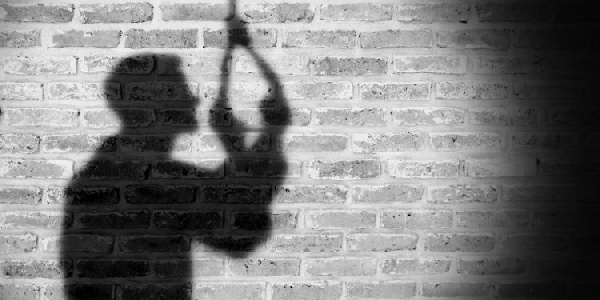 Ghana recorded 134 deaths by suicide in 2024 alone
Ghana recorded 134 deaths by suicide in 2024 alone
A psychologist at the University of Ghana, Professor Joseph Osafo Adu, has cautioned that suicidal thoughts often hide behind smiles and that people ignoring the warning signs could cost lives.
Speaking on the latest episode of Health Focus on GhanaWeb TV with Stella Dziedzorm Sogli, the psychologist explained that a mix of academic pressures, relationship heartbreaks, and unresolved traumas is driving young people, especially students, to take their own lives.
“Among students, we’ve seen conflictual relationships, traumatic experiences, and burdensome academic memories.
“Last year, a young man in SHS took his life because of a romantic breakup. He simply couldn’t cope with the loss,” he said.
He noted that while some individuals engage in self-harm not to die but to seek attention or relief from deep emotional pain, these actions can easily turn fatal.
“The intention isn’t always to die. They just want people to notice their pain. But in the process, they can bleed to death,” he explained.
The conversation also shed light on how Ghanaian society’s stigmatising response to mental health crises makes things worse.
“We live in a very prohibitive environment. When someone attempts suicide, they are often insulted or shamed, even by family. Some survivors are treated as a disgrace to their homes. We have data showing that families sometimes make survivors feel so unwanted that they attempt again,” he added.
The psychologist urged families, friends, and communities to take verbal cues seriously.
“When someone says, ‘I want to die,’ don’t brush it off. That’s the gravest warning sign you can get. Others may reveal their plans or withdraw completely. Even those who appear cheerful might be battling silent pain,” he stressed.
134 suicide deaths recorded in 2024, 475 attempts in 2025 – Mental Health Authority
Professor Osafo added that feeling worthless, like a burden, or constantly expressing hopelessness are all danger signs that require empathy and immediate support, not judgment.
As Ghana continues to battle increasing reports of depression and suicide among its youth, the expert called for a cultural shift toward compassion, listening, and early intervention.
“Let’s stop calling people weak or foolish for struggling. Instead, let’s pay attention, talk to them, and help them find professional support before it’s too late,” he noted.
SSD/AE
Watch the latest episode of Health Focus below
